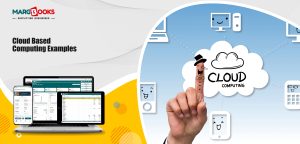In today’s fast-paced, technology-driven world, businesses are increasingly turning to cloud-based service software to streamline operations, enhance collaboration, and reduce costs. Gone are the days when companies needed to maintain their own expensive IT infrastructure, software installations, and updates. With the rise of cloud technology, businesses of all sizes now have access to scalable, cost-effective solutions that are hosted offsite and accessible via the internet.
But what exactly is cloud-based service software, and how can it benefit your organization? In this blog post, we’ll explore everything you need to know about cloud-based software, including what it is, the types available, its benefits, and how to choose the right solution for your needs.
What is Cloud-Based Service Software?
Cloud-based service software is a model in which software applications are hosted on remote servers (i.e., in the “cloud”) rather than being installed locally on your computer or on-site server. With cloud-based solutions, you access and use the software over the internet, typically through a web browser. This eliminates the need for on-premises installations and maintenance, as everything from software updates to security patches is handled by the cloud service provider.
The cloud model provides numerous advantages, including enhanced flexibility, automatic updates, and cost savings. Whether you’re running a small startup or a large enterprise, cloud software can help you meet your business needs without having to invest in expensive infrastructure or worry about system maintenance.
Benefits of Cloud-Based Service Software
The transition to cloud-based software has brought significant advantages to businesses, and here are some of the top benefits:
- Cost Savings:
- One of the most appealing benefits of cloud software is cost savings. There’s no need to purchase expensive hardware or pay for large software licenses upfront. Cloud-based solutions typically operate on a subscription or pay-as-you-go model, allowing businesses to pay only for what they use.
- Scalability:
- Cloud services offer scalability, meaning you can easily increase or decrease your usage as your business needs change. Whether you’re expanding your team or experiencing an uptick in customer demand, cloud software can adjust to meet those needs without requiring significant changes to your infrastructure.
- Accessibility and Flexibility:
- Cloud-based services can be accessed from anywhere with an internet connection, allowing for greater flexibility and remote work capabilities. This is especially valuable for businesses with teams spread across different locations or for employees who work from home.
- Automatic Updates and Maintenance:
- Cloud software providers handle all updates and maintenance, ensuring your software is always up-to-date with the latest features and security patches. This takes the burden off your internal IT team, saving time and resources.
- Security:
- Cloud providers often have robust security protocols in place, including encryption, firewalls, and regular backups, to protect your data. Many cloud services also offer compliance with industry regulations, such as GDPR or HIPAA, which can be challenging to achieve with on-premises solutions.
- Collaboration:
- Cloud software often includes collaboration features that allow multiple users to work together on the same document or project in real-time. This enhances teamwork and improves productivity, especially for remote teams or global businesses.
Challenges of Cloud-Based Software
While cloud software offers many benefits, it’s not without its challenges. Some potential drawbacks include:
- Dependence on Internet Connectivity:
- Since cloud software relies on the internet, any disruptions to your connection can hinder your ability to access the software. Businesses in areas with unreliable internet access may find this a challenge.
- Data Privacy and Security Concerns:
- Storing sensitive data in the cloud means entrusting a third-party provider with that information. While cloud providers typically have strong security measures in place, businesses need to ensure their provider is compliant with relevant data protection regulations.
- Vendor Lock-In:
- Moving data and services from one cloud provider to another can be complex and costly. Businesses should carefully consider their long-term needs and the flexibility of their cloud provider before committing to a particular service.
How to Choose the Right Cloud Software
Choosing the right cloud-based service software depends on your business’s specific needs. Here are some factors to consider:
- Business Requirements: Define what your business needs from the software—whether it’s for collaboration, CRM, accounting, or project management.
- Budget: Determine how much you’re willing to spend on cloud software. Subscription costs can vary significantly depending on the features and the number of users.
- Scalability: Choose software that can grow with your business. Look for solutions that offer flexible pricing and easy upgrades.
- Security: Ensure the software provider meets your security requirements, particularly if you handle sensitive data.
- Support: Look for providers with responsive customer support to assist with any issues or questions.
Conclusion
MargBooks provides Cloud-based service software has transformed the way businesses operate, offering unparalleled flexibility, cost savings, and efficiency. Whether you’re looking to streamline your operations, improve collaboration, or scale your business, cloud software provides a wide range of solutions to meet your needs. While it’s essential to weigh the potential challenges, the advantages far outweigh them for most modern organizations. By choosing the right cloud-based tools, you can future-proof your business and unlock new opportunities for growth and success.



